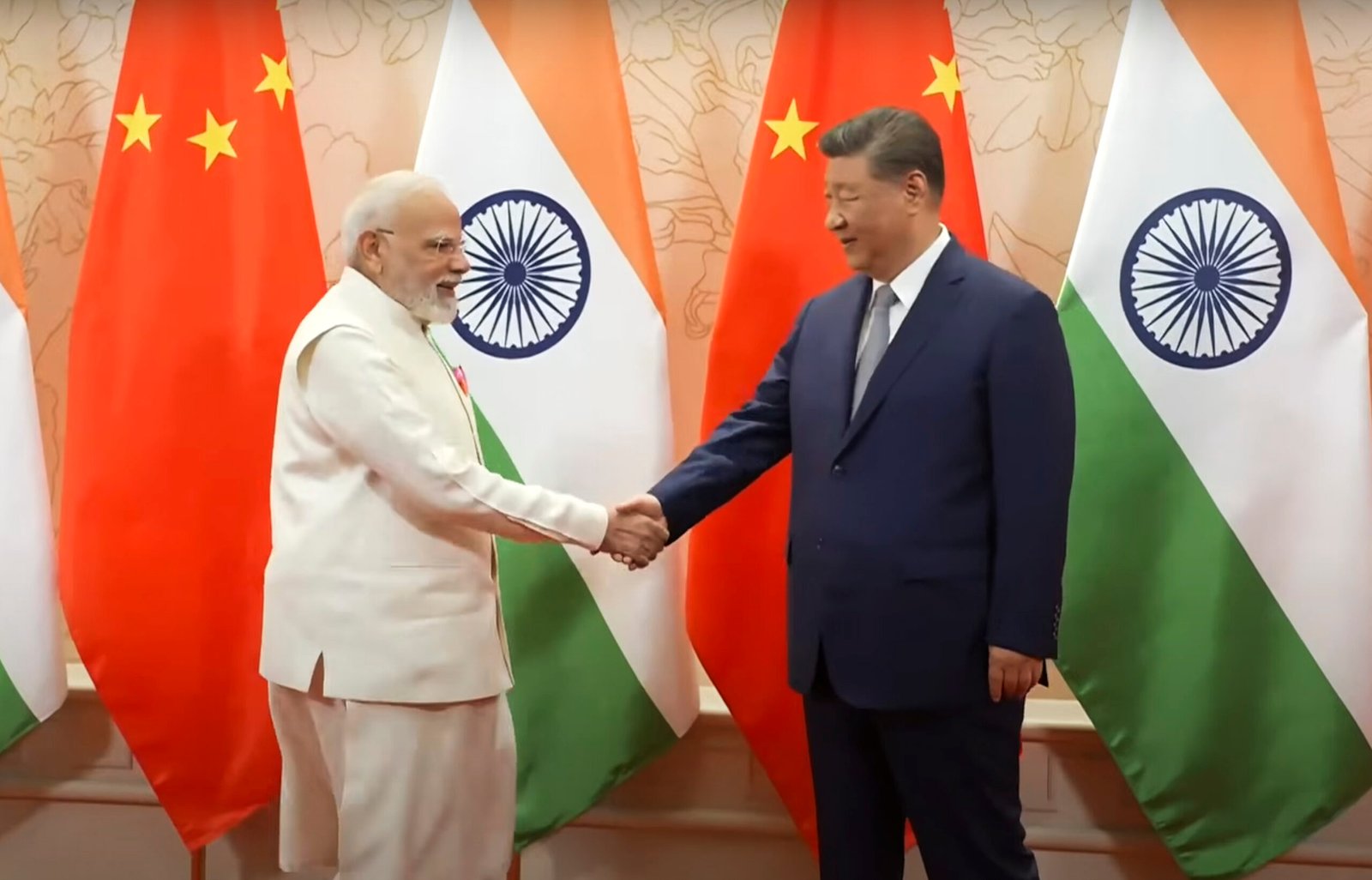Should India Risk Overlooking Boundary Issues While Normalising Ties with China?


News:
**Recently, Prime Minister Narendra Modi visited China for the Shanghai Cooperation Organisation (SCO) summit, reigniting discussions on India-China relations. Is India leaning towards China and overlooking long-standing border disputes, and what could this mean for regional stability and strategic balance?
Arguments in Favor of Overlooking Boundary Issues
1. Facilitates Economic Growth and Trade Expansion
Decoupling boundary disputes from economic ties allows India to harness Chinese investments, technology, and supply chains, strengthening domestic industries while creating jobs and growth opportunities. This pragmatic separation ensures that economic development is not held hostage to unresolved disputes.
- Example: Despite tensions, bilateral trade crossed $135 billion in 2022, making China India’s largest trading partner. Even in electronics, machinery, and chemicals, interdependence continued, showing how both sides prioritize economic growth despite unresolved boundaries.
2. Preserves Regional Stability
Engaging China diplomatically despite disputes reduces chances of escalation, maintains crisis communication, and strengthens peace mechanisms along the Line of Actual Control (LAC). Such engagement contributes to Asian stability and minimizes risks of accidental conflict.
- Example: The 2024 Border Patrol Agreement helped restore patrolling rights for both armies without resolving sovereignty, avoiding clashes like Galwan and proving limited agreements can stabilize flashpoints.
3. Strengthens India’s Global Leverage
By engaging China economically and diplomatically, India signals it can balance rivalry with pragmatism. This enhances India’s image as a responsible power, strengthening its global negotiating position.
- Example: India’s Shanghai Cooperation Organisation (SCO) participation shows New Delhi can work with adversaries when interests align, giving it credibility in multilateral diplomacy.
4. Opens Opportunities in Multilateral Forums
Cooperation in platforms like SCO, BRICS, and RCEP allows India to shape global rules on trade, technology, and security. Keeping ties normal ensures India is not isolated in Asian power politics.
- Example: In BRICS 2023, India and China took a joint strategic stance on reforming multilateral development banks, strengthening the bloc’s collective influence and effectively challenging Western-led financial institutions globally.
5. Buys Time for Military and Infrastructure Upgrades
A phase of managed peace with China provides India space to strengthen border infrastructure, boost defence manufacturing, and deepen strategic partnerships with the U.S. and Quad.
- Example: After 2020, India accelerated important infrastructure projects like the Atal Tunnel (Rohtang) and the DS-DBO Road in Ladakh, significantly improving troop mobility, logistics efficiency, and overall strategic preparedness along the border.
Arguments Against Overlooking Boundary Issues
1. Undermines National Security and Sovereignty
Normalising ties while leaving borders unsettled risks repeated Chinese incursions, weakening India’s territorial sovereignty and forcing a reactive security posture. Each compromise emboldens China and reduces India’s ability to enforce border protocols, complicating long-term defence planning.
- Example: The Galwan clash (2020), in which we lost our 20 soldiers, showed that decades of peace agreements could not prevent Chinese aggression, highlighting risks of ignoring unresolved boundaries.
2. Creates Asymmetrical Dependence on China
Focusing on trade while ignoring boundary issues deepens India’s economic reliance on China in pharmaceuticals, electronics, and renewable energy, risking strategic autonomy, reducing resilience during geopolitical crises, and leaving critical sectors vulnerable to supply chain disruptions.
- Example: Over 70% of India’s API imports come from China. During COVID-19, supply disruptions nearly crippled India’s drug manufacturing, highlighting how dependency can threaten national health and industrial security.
3. Demoralises Military and Border Communities
Sideling the border issue undermines soldier morale and frustrates local populations in Ladakh and Arunachal Pradesh, complicating border management, reducing trust in government decisions, and weakening cooperation between local communities and armed forces.
- Example: Post-disengagement buffer zones at Pangong Tso reduced patrolling access, causing resentment among troops and villagers, which could affect operational readiness and vigilance.
4. Limits Deterrence Against Future Aggression
Ignoring disputes signals weakness, encouraging Chinese adventurism. Engagement without settlement remains fragile, leaving India vulnerable to future provocations, undermining long-term deterrence, and potentially forcing India into costly reactive military operations.
- Example: Despite 1993 and 1996 pacts, China carried out 2020 maneuvers, proving that dialogue alone cannot guarantee peace or restraint in contested regions.
5. Erodes India’s Strategic Credibility
Overlooking sovereignty for trade gains risks India appearing inconsistent, weakening trust with neighbors and global partners, reducing India’s influence in regional diplomacy, and potentially affecting alliances and global perceptions.
- Example: Continuing high trade with China while warning Nepal or Sri Lanka against Chinese influence risks appearing hypocritical internationally, weakening India’s soft power and credibility.
Conclusion:
India’s engagement with China reflects a delicate balance between economic opportunities and security concerns. While normalising ties can boost trade, diplomacy, and regional stability, unresolved border disputes continue to pose strategic risks. A cautious and pragmatic approach, combining diplomatic dialogue, military preparedness, and multilateral cooperation, may help India navigate relations with China without compromising long-term sovereignty and security.